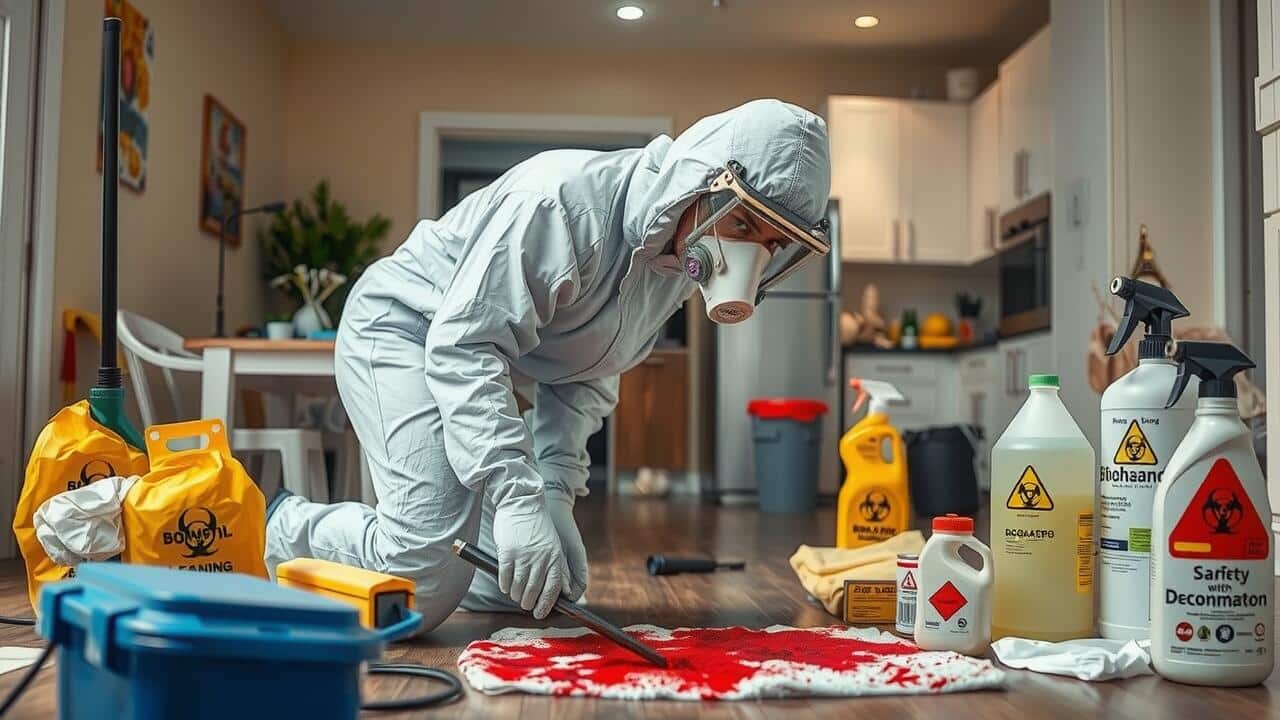
Table Of Contents
Insurance Coverage for Cleanup Services
Many homeowners are unaware that their insurance policies may cover the costs associated with biohazard cleanup. It’s essential to carefully review your policy documents or speak directly with your insurance agent to understand the specifics. Coverage often varies based on the nature of the incident, such as violence on the premises or hazardous material spills. Some policies may also require that the cleanup be performed by licensed professionals for reimbursement to apply.
When seeking coverage for biohazard cleanup, be prepared to provide documentation about the incident. This can include police reports or medical documentation, depending on the situation. Insurance companies will generally need to assess the severity of the incident and the necessity of professional cleanup services. Knowing which aspects of your policy apply can save you significant out-of-pocket expenses in the long run.
Understanding What Policies May Include
When evaluating insurance policies, it is essential to understand the specifics of what is covered regarding Biohazard Cleanup. Many homeowners’ insurance plans may include provisions for cleanup after incidents such as sewage backups, crime scenes, or hazardous material spills, but it depends on the policy details. Some plans might only cover certain types of damage or have limitations on the amounts payable for specialized services.
Additionally, specific commercial policies could also provide varying levels of coverage for Biohazard Cleanup, particularly for businesses in industries with higher risks. It is crucial to review the terms carefully and consult with an insurance agent for clarity on coverage limits and exclusions. Understanding these details helps ensure preparedness in case a situation requiring professional cleanup arises.
Selecting a Cleanup Service
When selecting a cleanup service for biohazard cleanup, it is essential to choose a provider with experience and specialized training in handling hazardous materials. Look for companies that are certified and adhere to local regulations. This ensures that the service employs professionals who understand the complexities involved in biohazard situations. A reputable company will also have the right equipment and safety protocols in place to manage potential risks effectively.
Additionally, consider the reputation of the cleanup service by seeking reviews and testimonials from previous clients. Inquire about their response time and availability, as these factors can be critical during emergency situations. A reliable biohazard cleanup provider will be responsive and willing to address any questions or concerns. Comparing quotes from multiple services can help ensure you receive a fair price without compromising quality.
Key Qualities to Look for in a Provider
When selecting a provider for biohazard cleanup, experience plays a crucial role. Companies with a solid track record possess the necessary skills to handle various hazardous situations effectively. Look for providers that have handled incidents similar to yours, ensuring they are familiar with the specific protocols and safety measures required. Certifications and training in biohazard removal further underscore a company’s reliability and professionalism.
Reputation is another key quality to consider when choosing a cleanup service. Researching client reviews and testimonials can provide insights into the company’s reliability and quality of service. A good provider should be transparent about their processes and willing to answer any questions you may have regarding the biohazard cleanup. Availability and responsiveness are also important factors, as timely action can significantly affect the overall outcome of the cleanup.
Importance of Timely Cleanup
Timely response in biohazard cleanup is crucial for minimizing health risks associated with exposure to hazardous materials. Delays in addressing biohazard situations can lead to contaminated environments, increasing the likelihood of disease transmission. Immediate action helps to ensure the safety of individuals in the vicinity, protecting both personal and public health.
Furthermore, the longer the hazardous material remains untreated, the more extensive and costly the cleanup process can become. Prompt biohazard cleanup can limit structural damage and reduce the need for additional remediation efforts. Ensuring a swift response not only safeguards health but also helps in managing overall cleanup costs effectively.
Health Risks Associated with Delayed Action
Delaying biohazard cleanup can pose significant health risks to individuals and communities. Bacteria, viruses, and other pathogens can thrive in contaminated areas, leading to the spread of infectious diseases. When blood, bodily fluids, or chemical spills are left unattended, they become breeding grounds for harmful microorganisms that can affect anyone who comes into contact with them. This is especially concerning for vulnerable populations, such as children, the elderly, and those with weakened immune systems.
Furthermore, prolonged exposure to biohazardous materials can lead to long-term health complications. Individuals may experience respiratory issues, skin infections, or severe reactions depending on the nature of the contaminants. Environmental hazards can also result from neglecting proper cleanup, causing ongoing damage to the surrounding area. Addressing biohazard cleanup promptly is crucial to ensure safety and minimize health risks for everyone involved.
FAQS
Is biohazard cleanup typically expensive?
Yes, biohazard cleanup can be expensive depending on the severity of the situation, the materials that need to be disposed of, and the level of specialized equipment required for the cleanup.
Will my insurance cover the cost of biohazard cleanup?
Many insurance policies may cover biohazard cleanup, but it varies by plan. It’s important to check with your insurance provider to understand your coverage and any potential out-of-pocket expenses.
What factors influence the cost of biohazard cleanup?
Factors that influence the cost include the type and extent of the contamination, the location of the incident, the need for specialized equipment, and the amount of labor required to safely and effectively carry out the cleanup.
How can I find a cost-effective biohazard cleanup service?
To find a cost-effective service, compare quotes from multiple cleanup providers, check their credentials and experience, and read reviews. It’s also advisable to ensure that they are licensed and insured.
What are the consequences of delaying biohazard cleanup?
Delaying biohazard cleanup can lead to increased health risks, further property damage, and potentially higher cleanup costs. Prompt action is crucial to minimize these risks and ensure safety.
